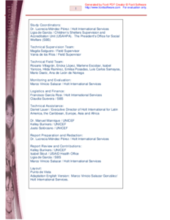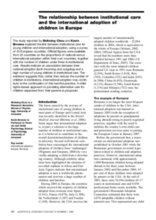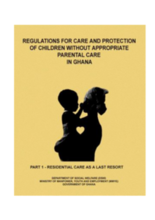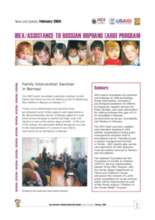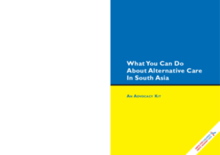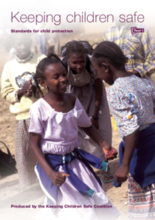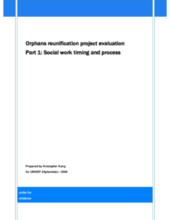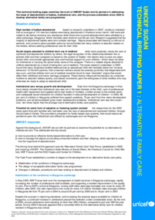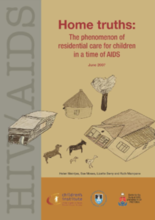Displaying 581 - 590 of 691
Assesses the causes and realities of children living in institutions in Guatemala with recommendations for systemic reform.
Explores causal relationship between increased international adoption and increase in institutional care of children in Europe.
These standards were drafted as part of a reform initiative programme in Ghana to ensure that institutional care is used as a last resort
Update on all recent seminars and activities relevant to child welfare reform and deinstitutionalization in Russia
Provides insight into the situation of children outside parental care in South Asia, gaps in legislation, capacity, and services, with reference to national and international legal instruments.
The first tool in the Keeping Children Safe Toolkit which explains what the basic standards should be for all organisations across the world working with and for children directly and indirectly
The study reported by Shihning Chou and Kevin Browne explored the link between institutional care for young children and international adoption, using a survey of 33 European countries. The evidence suggests that, rather than reduce the number of children in institutions, international adoption may contribute to the continuation of this harmful practice. A child rights-based approach to providing alternative care for children separated from their parents is proposed.
Analysis of reunification and reintegration program of 400 children in orphanages
Examines the work of UNICEF Sudan and its partners in addressing the issue of abandonment of babies, institutional care, and the process undertaken since 2003 to develop alternative family care programmes.
A report on residential care in South Africa in the context of AIDS and an under-resourced social welfare sector.

